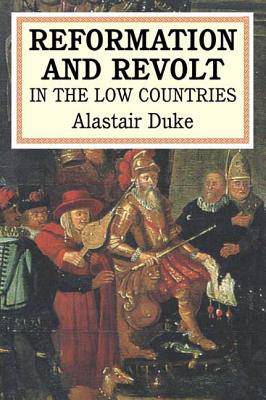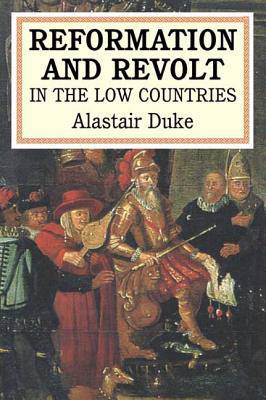
Bedankt voor het vertrouwen het afgelopen jaar! Om jou te bedanken bieden we GRATIS verzending (in België) aan op alles gedurende de hele maand januari.
- Afhalen na 1 uur in een winkel met voorraad
- In januari gratis thuislevering in België
- Ruim aanbod met 7 miljoen producten
Bedankt voor het vertrouwen het afgelopen jaar! Om jou te bedanken bieden we GRATIS verzending (in België) aan op alles gedurende de hele maand januari.
- Afhalen na 1 uur in een winkel met voorraad
- In januari gratis thuislevering in België
- Ruim aanbod met 7 miljoen producten
Zoeken
€ 101,45
+ 202 punten
Omschrijving
The Revolt of the Netherlands has long been familiar to English-speaking readers, but the Reformation there has remained largely a closed book. The Reformation in the Low Countries developed along very different lines from German Lutheranism. While the decentralised character of political authority ensured the survival of religious dissent, a prolonged persecution of heresy postponed the formation of public Protestant churches until after 1572. Conflicting interests and beliefs, as well as the war and political struggle, shaped the final religious outcome. Local considerations and individual responses played their part alongside the decisions of rulers, whether Philip II and his lieutenant, the duke of Alva, or William the Silent. Alastair Duke's work is of central importance to a proper understanding of both Reformation and Revolt.
Specificaties
Betrokkenen
- Auteur(s):
- Uitgeverij:
Inhoud
- Aantal bladzijden:
- 332
- Taal:
- Engels
Eigenschappen
- Productcode (EAN):
- 9781852853983
- Verschijningsdatum:
- 19/12/2003
- Uitvoering:
- Paperback
- Formaat:
- Trade paperback (VS)
- Afmetingen:
- 157 mm x 239 mm
- Gewicht:
- 517 g

Alleen bij Standaard Boekhandel
+ 202 punten op je klantenkaart van Standaard Boekhandel
Beoordelingen
We publiceren alleen reviews die voldoen aan de voorwaarden voor reviews. Bekijk onze voorwaarden voor reviews.









